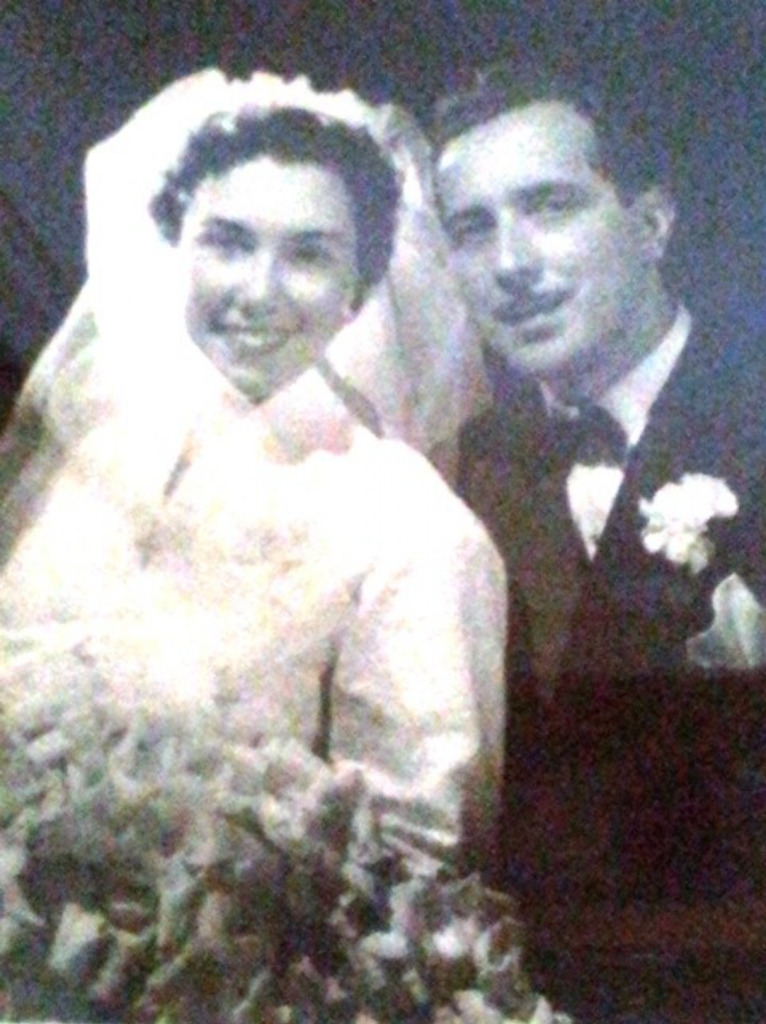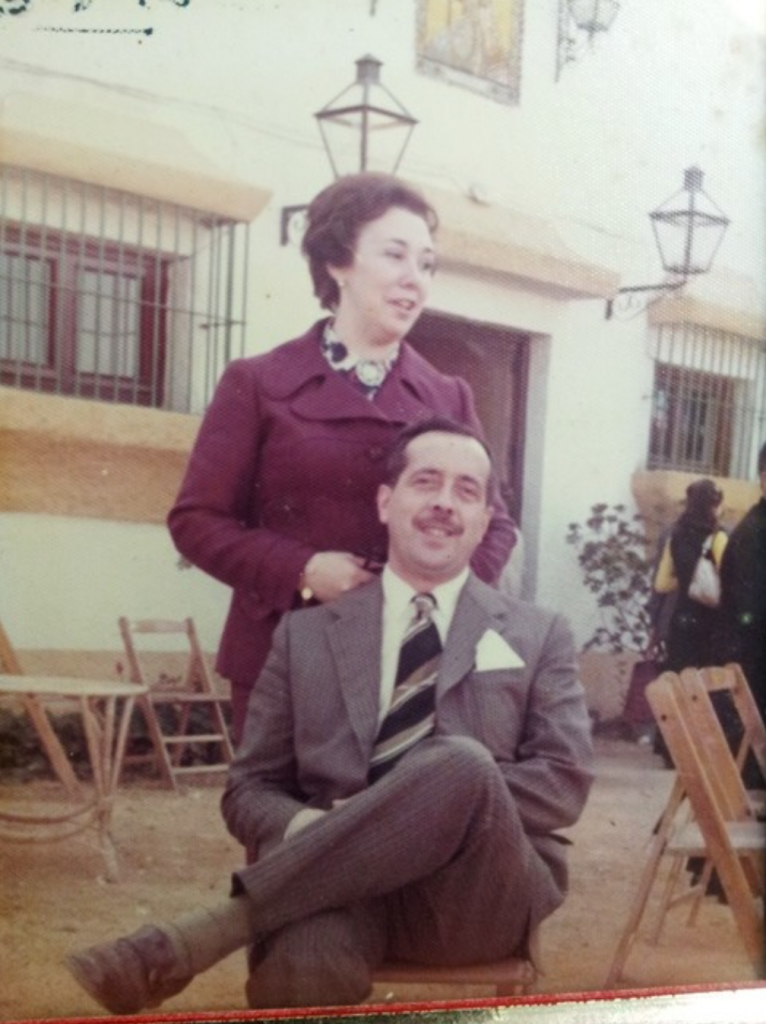My Parents. A Tribute
This is a brief translation of some paragraphs of the original manuscript, which is in Spanish.
My mother moved to her eternal home in May. This way of referring to her passing is not a euphemism, but, instead, is the traditional way in which we speak of our family at such times, and is what we say in the memorial cards. We buried her beside my father on May 23, just 57 years after the picture you can see on the left. It was a special date: their marriage anniversary. The other picture, on the right, was taken on May 23 as well, 16 years after the first one, when all the children had been born.
During the last weeks of her illness, I was afraid that this coincidence of dates might happen again. My father was always a very romantic man, and I had suspected that he would make all the arrangements to have my mother beside him, physically, on their anniversary, since we always celebrate it as a big day in our family. And so it happened.
Memories come to mind. I thought of one of my parents’ favorite movies, “An Affair to Remember,” and the scene when Cary Grant meets Deborah Kerr at the top of the Empire State Building. My father bought this movie when copies of “domestic” cinema were first available. He got “Casablanca” also, of course. It came with a big poster of Bogart and Bergman that my mother gave to me some years ago. “You can put it in some place you like; your father saved it for you,” she said. I put it on the terrace wall of our clinic, where some family get-togethers happen.
My parents were almost the same age. Mom was some months older. She was born in August 1928, and Dad, in May 1929. “The same year of the big Crash, so you can remember it easily. Maybe it is for this reason I have been always struggling to raise my family,” he sometimes said. And the real story is, despite the 1929 curse, the company he built—his family—was “the only one that succeeded” and is always a reason for continually thanking God. In one of the hardest times of financial crisis, my father went to the printer and asked for a special document in which he put his name, mom’s name, and the children’s names. The clerk asked what, exactly, that meant. And he answered: “This is the only enterprise I have run successfully.” The sentence became a symbol of his achievement in our family.

The eleven grandchildren –starting with the oldest, who is 24, to the youngest, who is 8—went to the cemetery to say goodbye to grandma. “You can go if you want. It’s not required,” their parents said. All of them went. And the youngest whispered a confidence into my ear: “When grandma was at the hospital I was praying to God to take her. You know, in the hospital, she never could attend my first Communion next Saturday. Now she will be there, sitting on the first row.” I was touched by the sincerity of a child, speckled with excusable selfishness but imbued with profound theological sense. Two days later, he was there at the first Communion ceremony, very concentrated and sure grandma was watching and smiling at him.
In my family we always were guided by a culture of transcendence, which just means faith in God and in eternity. Those who have passed away are still present, they are part of the family, we ask for little favors, and they answer. Since my brother Pedro died, when the little children lose any stuff, we can hear their petition: “Ask uncle Pedro.” And things appear.
I have been wondering how my parents lived in such wonderful harmony. They got married between their respective birthdays, when they were exactly the same age in years. Now Mom leaves us in the same circumstance: between their birthdays. And so did Dad, when he left us in July 1997. That reminds me what Mom told me when I was a child: “I don’t like to wear big heels because I don’t pretend to be taller than your father.” They coordinated everything, as when they danced the pasodobles I saw so many times: in a perfect matching. Yes, they loved dancing. And they loved movies too. When Dad passed away, my mother revealed in a soft voice, “You know what I was telling your father at the funeral parlor? The same thing that Errol Flynn tells his wife, in his role as General Custer (“They Died With Their Boots On”), before the battle: “It was a pleasure to walk through this life beside you.”
Madrid- São Paulo, 2013

